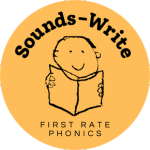Whilst the timing of this blog was prompted by the start of the new academic year in the UK, the guidance will be useful to teachers using a Phonics Screening Check anywhere around the world.
Welcome to the start of another new academic year! Whilst the PSC (Phonics Screening Check) may seem a long way off, let us share some top tips for a strong start to the year to ensure that your journey to the PSC is a success. As a Year One teacher, it might feel like all eyes are on you when it comes to the PSC, but remember that PSC success is a real team effort and many different people play key roles in this journey.
| Reception teacher |
| Year 1 teacher |
| Phonics Lead |
| Teaching assistant |
| Year 2 teacher |
Reception teacher
In the first year of formal schooling, it is vital that systems and routines are established quickly to ensure that your phonics lessons can get off to a strong start and run smoothly for the rest of the year.
It’s well worth investing the time now to teach your students things like handing out whiteboards, drawing three little lines to write on, pointing at the sounds, everyone joining in to say the sounds, everyone looking and listening when they should be, etc.
We know that it takes time to build up to a 30-minute full phonics session, and at first your session may only last a few minutes, but you should aim to build up quickly to a full 30-minute session as soon as possible. For some classes this will be by the end of Unit 1 and for all classes this should be by the end of Unit 4.
Read our guidance on getting started in Reception, if you haven’t done so already. Availalbe in the downloads section of the website for Sounds-Write Practitioners only.
Year 1 teacher
Whether you have taught Year 1 before or are new to Year 1, take the time to familiarise yourself with our PSC guidance materials now. Head over to our Practitioners’ Portal, where you will find information on how our scope and sequence fits with the expectations of the PSC, a video full of PSC advice, and a suite of adapted PSC tests that have been designed to be carried out throughout Year 1 to support your formative assessment – the first one can be used towards the end of September, so don’t delay checking those out! Remember to start Year 1 with a recap of the Initial Code – six weeks is a long time to be off school and students will need a chance to refresh their skills and knowledge before pressing on with the Extended Code.
Year 2 teacher
If you’re in Year 2 this year, you’ll need to ensure that you have had a thorough handover meeting to discuss the needs of any students who need to retake the PSC this year. You’ll need to make sure that these students are able to access what they need through catch-up interventions covering earlier parts of the Initial and Extended Codes , without removing them from their Year 2 lessons. This will take some creativity when it comes to timetabling and staffing.
>> Discover our Masterclass Interventions course, specifically aimed at supporting educators teaching in intervention settings. >>
Teaching assistant
Teaching assistants play a key role in preparing students for the PSC. In whole-class lessons, TAs (Teaching Assistants) can support students in accessing the learning by providing additional scaffolds such as drawing in sound or syllable lines, providing additional gestures, using sound tiles at a desk to build the word together, supporting fine motor skills for writing, providing a word or a piece of code on a mini whiteboard to be copied etc.
TAs need to be confident with teaching through errors so that in-the-moment feedback can be given when listening to children read. If TAs are delivering interventions, they should be trained in Sounds-Write and fluent in delivering both the main lessons and follow-up lessons.
Phonics Lead
If you are a phonics lead, you will need to have all of the above and more in mind when you are monitoring this term. When we say monitoring, we do not mean formal lesson observations but your ongoing support and coaching of colleagues who are delivering phonics. Make sure that you are knowledgeable about the scope and sequence for the Initial Code and Extended Code, and that you are confident about the pace at which classes should be progressing through it.
Remember that the scope and sequence is cumulative, so classes should be progressing through it at the recommended pace. You’ll need to identify students who require additional phonics input early and ensure that the keep-up and catch-up interventions are scheduled outside of phonics lessons and are run by a trained practitioner.
Finally, have you seen and are you planning to use our new progress checks? These will support your ongoing formative assessment and will ensure that there are no surprises when it comes to the PSC. Head over to the Practitioners’ Portal to find these now if you haven’t done so already!
>> If you’d like to know more about any of these topics, register your interest for our Phonics Lead Masterclass. >>
Join the Sounds-Write Membership
Gain access to all the training and resources you need to teach phonics with confidence and success. Our whole-school membership makes it easy and affordable for every staff member to access the Sounds-Write programme, expert-led training, and practical classroom tools—all under one inclusive fee.
Whether you’re building consistency across year levels or supporting new staff, the Sounds-Write membership helps your team deliver structured literacy with clarity, confidence, and success.
You may also like
Phonics Screening Check – Tips for a Strong Start to the Academic Year (Australia)
Whilst the timing of this blog was prompted by the start of the new academic year in Australia, the guidance will be useful to teachers using a Phonics Screening Check anywhere around the world. In fact, we shared a VERY similar post back in September for the start of...
The Phonics Screening Check 2025 (England): Our Analysis
In this post, Sounds-Write's Founder and CEO John Walker examines the structure of the Phonics Screening Check 2025, highlights patterns and potential points of confusion, and offers guidance on how teachers can use this insight to better support early readers. You...
The Importance of ‘Keep-Up’ Interventions
Whether you are at the start of the year, as our Australian colleagues are, or mid-year as our UK and US colleagues are, it is ALWAYS a good time to talk about the importance of ‘keep-up' intervention. What are ‘keep-up’ interventions? Whilst at Sounds-Write we...
Sounds-Write Ltd
Whiteleaf Business Centre
11 Little Balmer
Buckingham
MK18 1TF
Tel: 01280 825537
Registered in England and Wales: 04655753
VAT Number: 821260076
Copyright Sounds-Write Ltd




